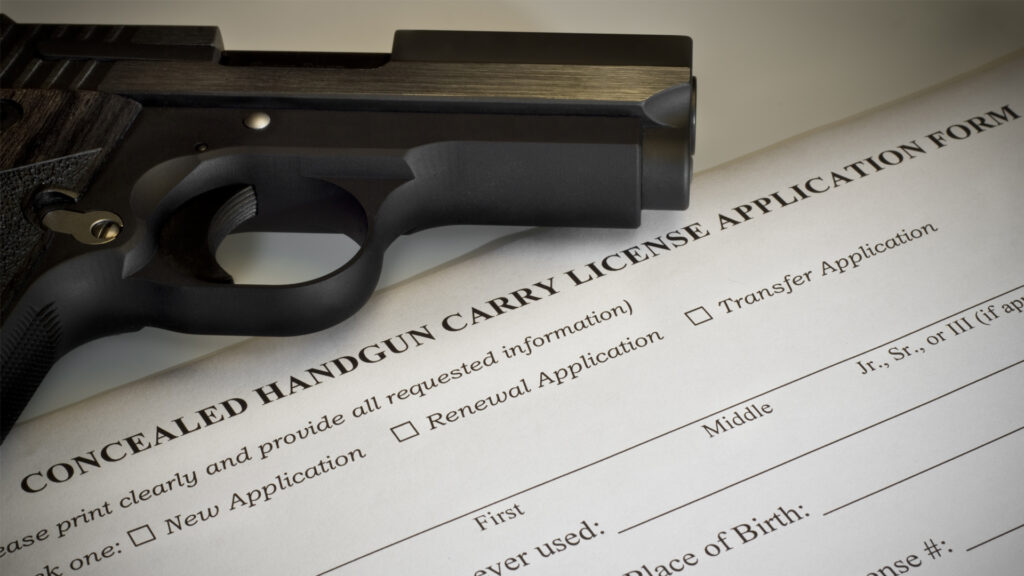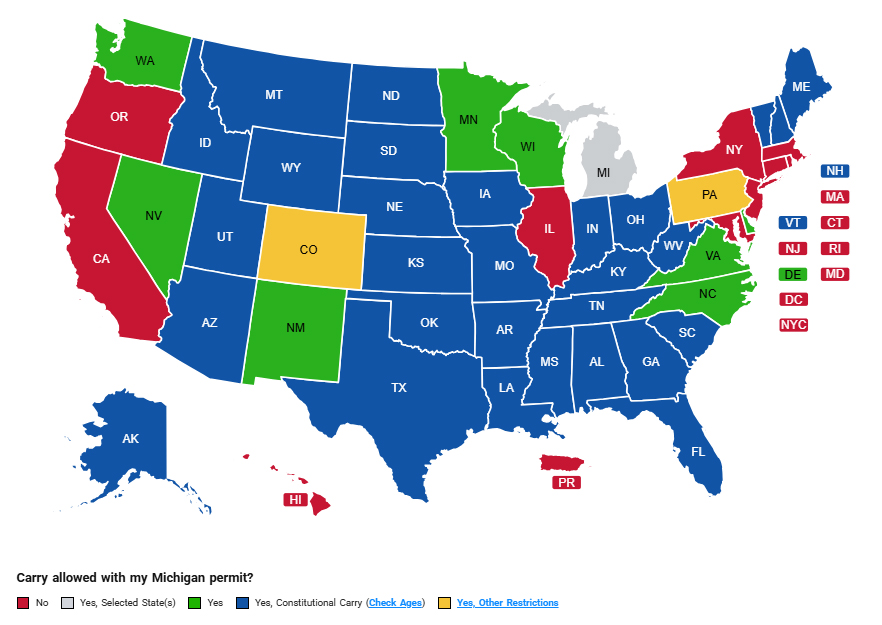
The national conversation around concealed carry rights has been reignited with the recent advancement of the Concealed Carry Reciprocity Act. This legislation, introduced in the U.S. House of Representatives, aims to create a standardized national framework where concealed carry permits are recognized across state lines—similar to how driver’s licenses function between states.
For Michigan gun owners and CPL (Concealed Pistol License) holders, this proposed law could significantly simplify the confusion and legal risk associated with traveling while carrying a firearm.
But while H.R. 38 has sparked excitement among Second Amendment supporters, the law has not yet been passed, and firearm owners must continue to follow the current patchwork of state reciprocity laws.
Where Does the Concealed Carry Reciprocity Act Stand Today?
Following President Trump’s executive order to review and protect second amendment rights, the Concealed Carry Reciprocity Act is just one of the many second amendment bills in the mix that align with this administration’s promise to protect your 2A rights.
Introduced by Rep. Richard Hudson (R-NC), and has recently moved through the House Judiciary Committee. This bill would require states to honor valid concealed carry permits issued by other states, similar to how driver’s licenses are recognized.
Supporters argue that this legislation would reinforce Second Amendment rights and protect law-abiding gun owners from unknowingly violating other states’ firearm laws. However, as of today, the bill must still pass through both chambers of Congress and be signed by the President to become law.
Until then, reciprocity remains a state-by-state issue, and CPL holders must know the specific laws of any state they plan to visit.
Which States Have Concealed Carry Reciprocity With Michigan?
Currently, Michigan honors concealed carry permits from several other states, but not all. One of the most notable gaps is Illinois, which does not recognize any out-of-state concealed pistol licenses—including Michigan’s CPL—while Michigan does honor Illinois permits.
This inconsistency places lawful gun owners at risk of serious criminal charges simply for crossing into certain states while legally carrying. For more information on how state-to-state conceal carry reciprocity works, check out the United States Concealed Carry Association’s website.

More Michigan CPL Resources:
Three Rules Every Out-of-State CPL Holder Must Follow in Michigan
If you’re traveling through Michigan with an out-of-state concealed pistol license, here are three critical rules to follow to remain compliant:
1. Carry Your Physical License at All Times
Michigan law requires you to have your actual CPL on hand and to present it to law enforcement if requested.
2. Avoid Illegal Intent or Behavior
Reciprocity applies only to law-abiding gun owners. If you’re engaged in any illegal activities or carrying with unlawful intent, your license will not protect you.
3. Understand Michigan’s Residency Rule
If you have lived in Michigan for more than six months, you are legally considered a Michigan resident. Once classified as a resident, an out-of-state license is no longer valid—you must apply for a Michigan-issued CPL.
Restoring Your Firearm Rights: Don’t Wait for Legislation to Change
While national reciprocity could make carrying across state lines easier, it won’t help those who have lost their firearm rights due to a past conviction.
In Michigan, individuals who have lost their rights because of a felony or certain misdemeanor convictions may be eligible to restore those rights through expungement, a court petition process, or both. However, this process takes time—often several months—and should be started well in advance of hunting season or travel plans.
While travelling with a legal CPL across state lines is filled with a mix of inconsistent laws, it goes without saying that the punishments for illegally possessing firearms are not worth the risk. If you’ve been denied the ability to legally own or carry a firearm due to a criminal record, The Law Offices of Barton Morris can help you navigate the complex firearm restoration process and determine your eligibility.
Contact Michigan’s Trusted Firearm Rights Restoration Attorney
At The Law Offices of Barton Morris, we are committed to defending your Second Amendment rights. Whether you’re looking to restore your firearm rights, understand CPL reciprocity laws, or avoid legal pitfalls while traveling, we can help.
📞 Contact us today to schedule your consultation and take the first step toward protecting your freedom.
Read More About Michigan Firearm Rights
-
- DOJ Announces Major Shift for Gun Rights Restoration for Non-Violent Felonies
- For more information on how we help you with firearm rights restoration.
- Michigan’s Red Flag Law — A Threat to Your Second Amendment Rights
- Learn about how Michigan’s Clean Slate Law may affect your firearm rights.
- Understand Your Concealed Carry Rights After a Domestic Violence Conviction
- Michigan Firearm Restoration Proceedings
